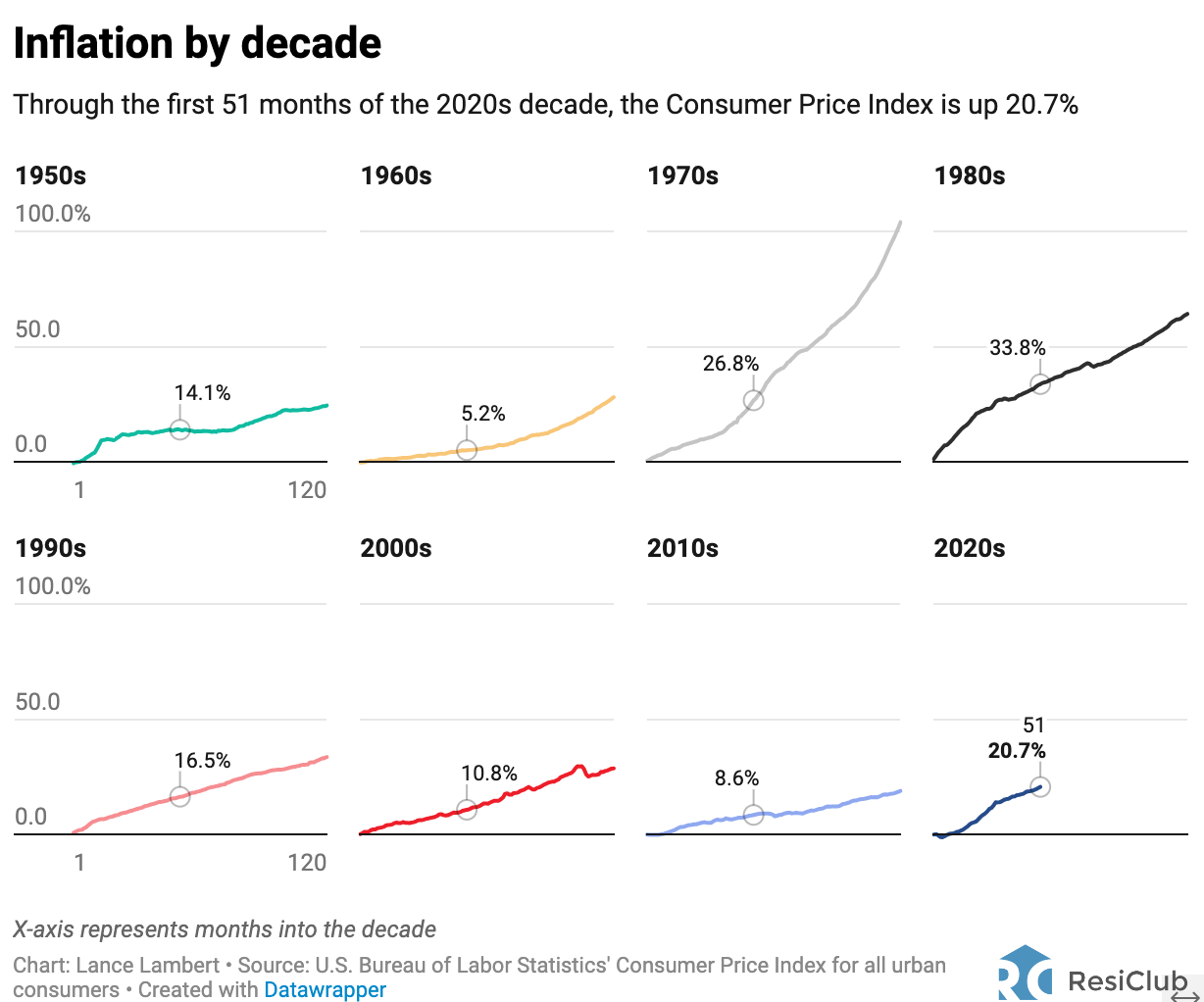However, it is anticipated that the 2020s will conclude well below the total inflation levels witnessed in the 1970s and 1980s.
Based on what exactly? And who is anticipating this?
lol the same people who told us that the economy was doing great this whole time
Have you considered it’s only 2% inflation in this year of our lord 2024?
 I have no raise and I must scream.
I have no raise and I must scream.The 1960s isn’t including here, and yet that’s when things started to go off the rails, culminating with the end of the gold standard. The core problem underneath all of this is the neverending search for infinite growth in a finite world. We almost hit a few brick walls but managed to innovate our way around them, each time into a deeper hole we can’t climb out of. I’m sure we can keep that up…
Amusingly, one of the primary factors driving the decline during the 60s was the Vietnam war, and today it’s the proxy war in Ukraine.
Guns or butter. LBJ was convinced we could have both at the same time.
Ukraine is different in a lot of ways; calling it a proxy war is more apt in a way I don’t think you meant. We’re sending older equipment in order to make more new stuff. Using the war as convenient indirect demand. Don’t let a crisis go to waste, after all. I support Ukraine’s cause, but it’s also being used to make rich people richer, as always.
It’s pretty clear that the US has run out of old stuff to send a long time ago. If you look at the aid package breakdowns, it’s all stuff that is to be produced. Make no mistake, the war is having a significant impact on the US economy, and it’s diverting labor from productive work that would actually benefit people of the country.
The negative economic impacts of what I think is pretty much the early stages of WW3 (like the sino-chinese war that went on for a few years before 1939) come from 2 main sources. Disruption in gas and agricultural products from Russia and Ukraine, and disruption in trade in the red sea.
The other comment or points out that the us is diverting productive labor into militarism from this war, but that has always been the case. The us wastes a shockingly high amount of its labor on garbage, but this won’t show up on the gdp statistics because those only tell you how much purchasing power a country has (relative to others), not what that power is used on.
We’re sending older equipment in order to make more new stuff.
This is just MIC propaganda. Don’t fall for overly convenient narratives.
I’d suggest reading Michael Hudson’s Superimperialism for some background on why the US went off the gold standard. To succinctly summarize, it’s because the US had dug itself into a massive balance of payments problem in the post-war period, primarily due to the imperialist wars in Korea and Vietnam, and had no way out beyond simply telling the rest of the world that it wouldn’t be bothering to balance its payments anymore.
Dropping the gold standard was a means to an end, not an end unto itself. It also wasn’t done overnight in 1972, there was more than a decade of soft-dropping leading up to the final event.
I always cringe a little internally when I see someone pointing at the dropping of the gold standard as The Thing[TM] which has defined the neoliberal era, as in my experience it’s some sovereign citizen type dreaming up some anarcho-capitalist world in which gold (coin) and lead (bullets) are the only two payment instruments worth anything and there is no such thing as society anymore.




